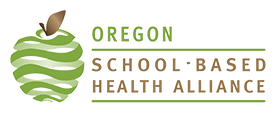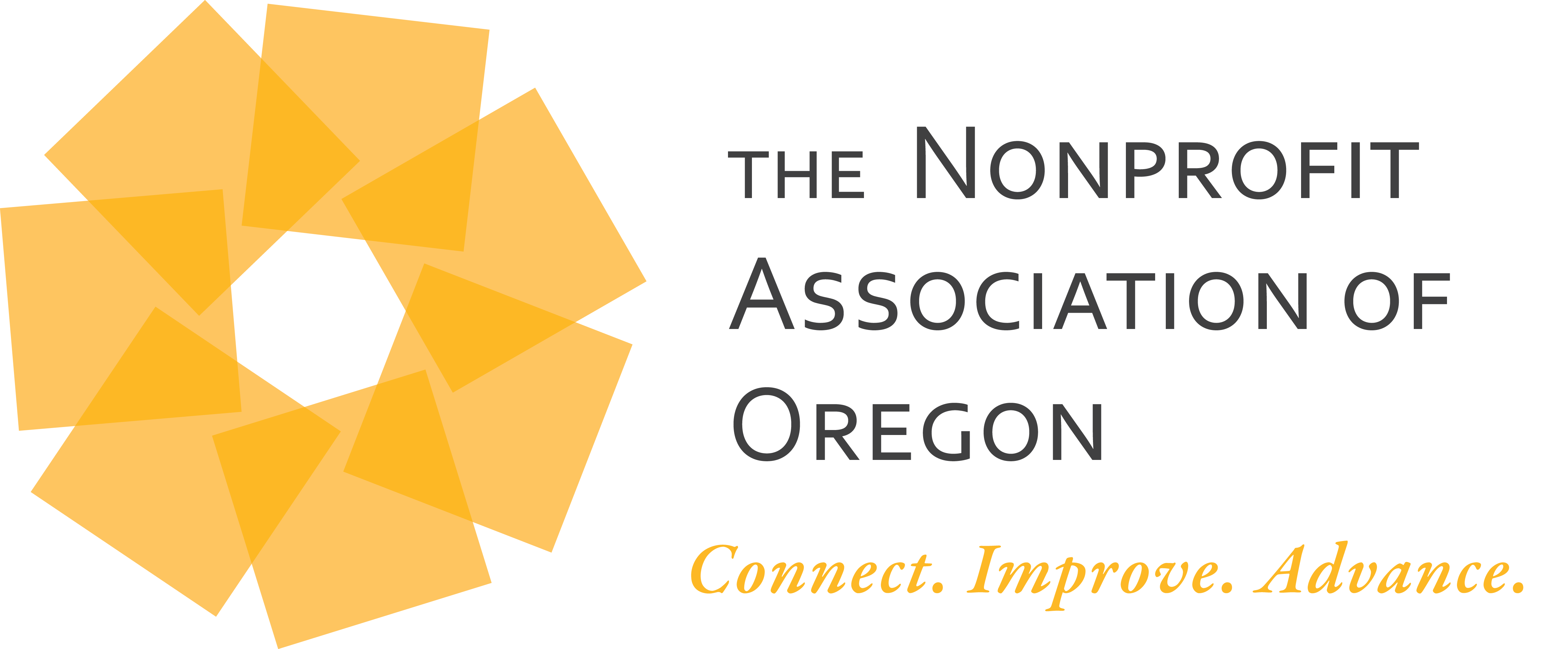Conference Schedule
PRECONFERENCE SESSION - THURSDAY, OCTOBER 8, 2015
Eye to Eye: Discussing Sensitive Topics with Youth | 2:00 - 5:00 pm
Organization: Oregon School-Based Health Alliance
Presenters: Statewide Youth Action Council members
Learn how to create a forum in which teens and health care providers can work together to improve communication. By the end of the training participants will be able to: develop a stronger rapport with young people/teens; identify the type and quality of health advice young people want to receive; describe the importance of confidentiality in a youth/adult mentor relationship; convey a non-judgmental attitude in talking with teens; connect biases to their impact on treatment for teens; and provide services in accordance with sexual and reproductive health laws for minors.
Organization: Oregon School-Based Health Alliance
Presenters: Statewide Youth Action Council members
Learn how to create a forum in which teens and health care providers can work together to improve communication. By the end of the training participants will be able to: develop a stronger rapport with young people/teens; identify the type and quality of health advice young people want to receive; describe the importance of confidentiality in a youth/adult mentor relationship; convey a non-judgmental attitude in talking with teens; connect biases to their impact on treatment for teens; and provide services in accordance with sexual and reproductive health laws for minors.
RECEPTION - THURSDAY, OCTOBER 8, 2015
Celebrating 30 years of SBHCs in Oregon!
Join us at the Crowne Plaza Hotel near the Oregon Convention Center for a casual reception to celebrate Oregon SBHCs and 30 years of SBHC history. There is no fee for the reception: Register Now
Join us at the Crowne Plaza Hotel near the Oregon Convention Center for a casual reception to celebrate Oregon SBHCs and 30 years of SBHC history. There is no fee for the reception: Register Now
FULL CONFERENCE - FRIDAY, OCTOBER 9, 2015
7:30 – 8:00 Registration & Breakfast8:00 – 8:35 Welcome & Ignite SBHC Session
Our opening SBHC Ignite session will feature brief, invigorating presentations by Elizabeth Steiner-Hayward, Serina Reckling, Michael Ralls, Nicole Naslund, Laurie Monnes-Andersen, Meg Feeley, and Brent DeMoe.
8:45 – 10:00 A Workshops
10:15 – 11:30 B Workshops
11:30 – 12:00 Networking/Poster session/Exhibitor engagement
12:00 – 2:00 Lunch, partner awards, health and education panel
[12:15] Introductions & Awards
[12:40] Moderated luncheon panel: Learn about our panelists and moderators
2:15 – 3:30 C Workshops
3:30 – 3:45 Networking & Snacks
3:45 – 4:00 Closing Events
Workshops offered are structured in four tracks for a total of 13 workshops: Clinical, Youth Engagement, Partnerships, Policy & Sustainability. Specific time slots to be determined.
CLINICAL
WORKSHOP A: Incorporating COPE: A Cognitive Behavioral Skills Building Program into an SBHC PracticeOrganization: Multnomah County Health Department
Presenters: Tamra Kehoe
This session will briefly review the epidemiology of adolescent depression and anxiety as well as the evidence based interventions and treatments supported in the literature. The 7 session COPE model will be described with an emphasis on the research supporting the model. Particular attention will be paid to lessons learned in incorporating it into a SBHC practice. It will highlight the training requirements, logistics, challenges and opportunities when incorporating this model by primary care providers.
WORKSHOP B: Trauma-Informed Care and the Sanctuary Model
Organization: Trillium Family Services
Presenter: David A. Jeffery, MD
Research is revealing uncomfortable truths about the higher than expected prevalence of adverse childhood events and the potential long term negative health effects of untreated or unmanaged trauma. In this workshop, participants will learn more about trauma theory and the Sanctuary Model, a theory-based, trauma-informed, evidence-supported, whole culture approach that has a clear and structured methodology for creating or changing an organizational culture. There will be instruction and practice in at least one Sanctuary tool. There will also be time for audience discussion and reflection.
WORKSHOP C: Teen Intervene: Integrating an Evidence-Based Curriculum to Address Substance Use and Abuse within Your School-Based Health Center
Organization: Lifeworks NW
Presenter: Gina Silva
School-based health professionals provide an accessible, affordable, and confidential setting in which to address the growing problem of adolescent alcohol and substance use. Yet, so often these health care providers report feeling a lack of effective intervention strategies. In this workshop, participants will learn how to deliver Teen Intervene, a three-session, evidence-based curriculum designed to address mild to moderate substance abuse issues with adolescents in a school-based setting.
YOUTH ENGAGEMENT
WORKSHOP A: Empowering and Engaging Youth to Become LeadersOrganizations: Rogue Community Health, Lines for Life
Presenters: Bridget McGonagle, Anthony Tacchini, Jourdyn Bloom, Donna Libemday, Kovi Altamirano, Michelle Benson, Mandy Storm
An active youth advisory council empowers students as agents of change to effectively give voice to youth issues, create partnerships and cultural change, and impact school climate. This workshop will provide an urban and rural snapshot of how Portland students and students from Butte Falls and Prospect have collaborated to do educational and awareness projects that have impacted their communities and schools. Workshop highlights include how students were recruited and retained, and examples of effective engagement for student-led change.
WORKSHOP B: Welcome to Wellness! Ways to Make your SBHC Youth-Friendly and a Place for Student Leadership Development
Organization: Outside In
Presenters: Kristine Kingstadt, Fawn McCool
Join Milwaukie High School Health & Wellness Center as we share strategies to make your SBHC an environment that is not only attractive and welcoming for youth, but also a place to inspire student-driven activities and empower youth leaders. Hear from students about their experiences with the SBHC and their efforts to support the health and wellness of their peers.
WORKSHOP C: Youth Participatory Action Research—Engaging Youth in Mental Health Promotion
Organizations: Oregon Health Authority, Oregon School-Based Health Alliance, Virgina Garcia Memorial Health Centers
Presenters: Stefanie Murray, Julia Hakes, Paje Stelling, Melissa Varnum
Authentically engaging youth in planning and decision-making can be incredibly beneficial to the young person themselves as he/she matures to adulthood, and to the community at large. This workshop will outline Oregon’s experience using two intertwined methods of positive youth engagement—Youth Advisory Councils (YACs) and Youth Participatory Action Research (YPAR)—to support mental health promotion. Participants will learn from our YPAR curriculum and the successes and challenges of our YAC projects.
PARTNERSHIPS
WORKSHOP A: Building a Community Coalition for Community Wellness: Lessons from the 3 to PhD InitiativeOrganization: Concordia University
Presenters: Sarah Sweitzer, Julie Dodge, Lisa Presnall
The 3 to PhD Initiative began organically 7 years ago from the close proximity of the two neighboring schools and has grown to include a new planned building that will co-house Faubion Pre-K-8 School in North Portland and Concordia University’s College of Education. The goal is to share the history of this unique public-private partnership, the current status, and the planned future. This will cover the 4 cornerstones of the Initiative. Using lessons learned from the 3 to PhD Initiative, participants of the workshop will be engaged using a community based action research process to: 1) Develop a “Culture of Wellness” common definition of “culture of wellness” across settings and communities, and 2) Assemble community partners from community needs assessment to evaluation. The workshop will wrap up with a discussion of how as a community we move forward from school based health centers to the epicenter of healthy communities.
WORKSHOP B: A Triad of Providers: Partnering to Increase Access to Holistic Health Services for Youth
Organization: HAVEN from Domestic and Sexual Violence
Presenter: Taylor Rosenthal, Courtney Gallant
In rural communities, partnering schools with Domestic & Sexual Violence agencies and health care services increases access for student survivors of dating violence and sexual assault, while providing schools with prevention and education opportunities that prevent future violence. The workshop explores partnership dynamics between the aforementioned community service providers and how these partnerships can create safer schools and nonviolent communities for youth. By providing anecdotal examples from the field, workshop attendees will be able to strategize preventative healthcare partnerships in their communities.
WORKSHOP C: Student Success: What’s School Employee Wellness Got to Do with It?
Organizations: OEA Choice Trust, Kaiser Permanente, Alliance for a Healthier Generation, Merlo Station High School
Presenters: Inge Aldersebaes, Elizabeth Engberg, Marcella Crowson, Molly Balfe, Bill Klatz
Schools today are faced with many challenges: increased accountability; children who may not be healthy and ready to learn; tight budgets and competing priorities. With challenges like these, now is absolutely the right time to become a champion for an employee wellness program in your school or district. Join this interactive session to learn how schools, and school based health centers, are achieving positive results for both school staff and students.
POLICY AND SUSTAINABILITY
WORKSHOP A: What I Wish I Had Known!Organizations: Outside In, Cowlitz Family Health Center, Polk County, Daniels Consulting, Oregon Health Authority
Presenters: Jill Daniels, Brent DeMoe, Zarod Rominski, Amber Rosewood, Kate O’Donnell
This workshop will highlight the activities of several organizations that have engaged in planning for new school-based health centers as part of an initiative funded by Kaiser Permanente NW Community Benefit, as well as the perspective of the Oregon Health Authority’s SBHC State Program Office. The diversity of the panel will provide for a robust discussion of the key elements of SBHC planning, youth empowerment, partnerships, and leveraging grant funds to achieve outcomes. The panel will focus on effective strategies to engage communities and establish a course for long-term SBHC sustainability with student, school, family, and community support.
WORKSHOP B: The Value of SBHCs: Defining Value in the Eyes of the Payor
Organizations: Centennial High School SBHC, Oregon School-Based Health Alliance, Health Share of Oregon
Presenters: Courtney Kappes, Maureen Hinman, Michael Anderson-Nathe
As healthcare transformation continues to take shape, there are increased opportunities for innovation both with regards to service delivery and with payment. In this workshop attendees will learn about the work that the Alternative Payment Innovation Project (APIP) group has accomplished around the process of developing an alternative payment model specific to SBHCs, specifically looking at how the group defined the value of SBHCs and how that value can directly relate to CCOs and their metrics. Attendees will have the opportunity to begin to define the value of their own SBHC programs and identify key talking points when engaging their CCOs with regards to alternative payments and other kinds of partnerships.
WORKSHOP C: School-Based Health Center Business Planning
Organization: National School-Based Health Alliance
Presenter: Serina Reckling
What types of services does your school-based health center provide? How many students do you see? What does it all cost to operate? Conducting a financial analysis helps answer these questions and more! Not only does it provide you a financial picture of today, but it helps you plan for a more sustainable future. Join us for an engaging workshop on how to use a pro-forma financial template to help you connect the dots between services delivered and sustainability.

